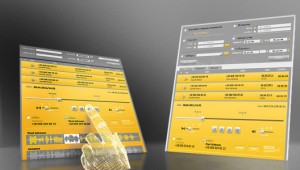Compliant Enterprise Server (CES)
Abto Software specialists generated a truly superb application that can be utilized for a number of industries including banking and finance, military, government and security institutions.
The initial challenge was to create a stable, secure and robust solution allowing to record phone calls, voice mails and SMS within the separate institution. These features are absolutely vital for almost every modern institution concerned with security issues. CES application allows to prevent spreading of the confidential corporate information.
Main CES features:
- performs recording of phone calls, voice mails, SMS from handset
- possibility to pre-listen of recorded calls & search SMS
- administrative user interface (UI) for setting up everything (Java, Tomcat, JSp , Struts2, MySql)
- set of daemons performing server works (Java, C++)
- high performance and super heavy duty
- high availability ( 24 / 7 / 365 ) system
- fail-proof, backup servers and even power supplies
- strict security
The web UI is essential for the purpose of the CES. Web user accounts are based on operational roles. The first release will provide Compliance Officers with a means of:
- auditing SMS that are sent or received by user handsets
- routing mobile voice calls to a call recorder.
Web user accounts are based on operational roles. There are two main varieties of the role:
- Pre-defined roles (PDR). These are the roles that exist in the system as placeholders and describe the roles required for the primary purpose of operation of the CES.
- User-defined roles (UDR). These are the roles that the System administrator can provision themselves.
In addition to the operational roles described above, the system has a special role required to initialize the customer’s environment. This is an once-only process relying on a single approved customer role (Sys Admin) and a single remote support role (Initiator).
This process provides a secure means of the supplier initiating the customer system and then permanently detaching all trust relationships. The reason for this process is to ensure that only users exclusively invited to access the system by the customer during operations can do this.
The CES is designed to initiate users through an invitation and approval process. The reason for this is that an additional layer of security can be added by involving two CES roles in the process.
